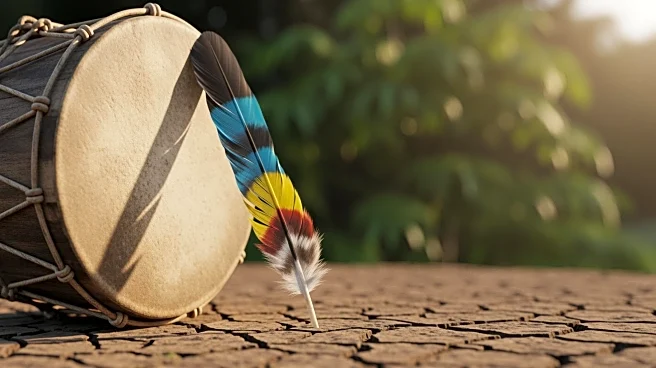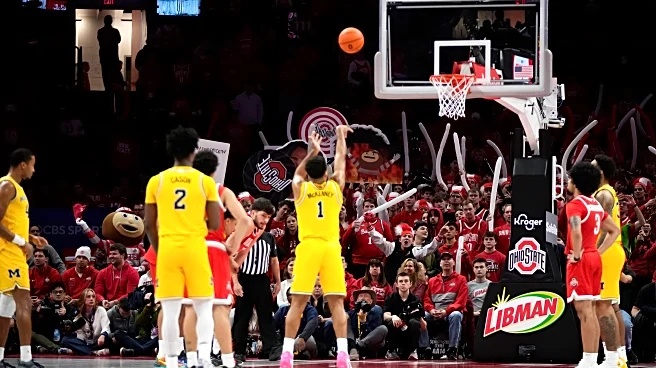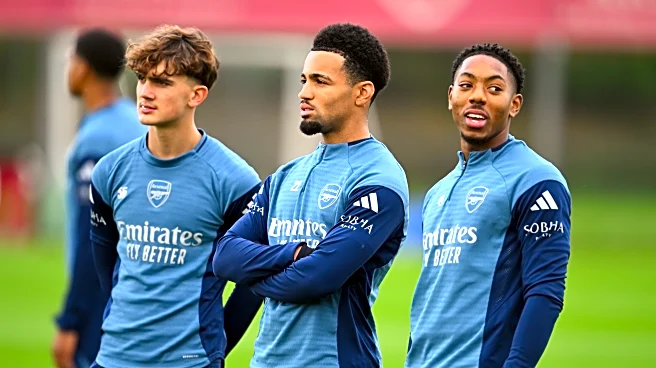What's Happening?
Indigenous groups in Brazil have disrupted the COP30 climate talks, demanding attention to their rights and environmental concerns. The protest, which took place at the entrance of the conference venue,
required participants to use a side entrance, causing delays. The demonstrators, dressed in traditional attire, formed a human chain to block access, highlighting their grievances over decisions made without their consultation. They are calling for a meeting with Brazilian President Luiz Inácio Lula da Silva and demanding the revocation of plans for commercial development of rivers and clearer demarcations of Indigenous territories. The protest reflects broader frustrations with the lack of progress in climate talks and the impact of agribusiness on the Amazon rainforest.
Why It's Important?
The protest underscores the critical role Indigenous communities play in climate conservation and the ongoing challenges they face in having their voices heard in international forums. Indigenous groups are vital custodians of biodiversity, and their involvement in climate discussions is crucial for effective environmental protection. The disruption at COP30 highlights the need for inclusive dialogue and action that respects Indigenous rights and addresses their concerns. The protest also serves as a reminder of the urgency to address climate change and the potential consequences of ignoring Indigenous perspectives, which could lead to further environmental degradation and social unrest.
What's Next?
The COP30 conference will continue with discussions on climate change, but the protest may prompt increased attention to Indigenous issues. Brazilian officials and international delegates may need to engage more directly with Indigenous leaders to address their demands and incorporate their perspectives into climate policies. The protest could lead to further demonstrations if Indigenous concerns are not adequately addressed, potentially influencing the outcomes of the conference and future climate negotiations.
Beyond the Headlines
The protest at COP30 highlights the ethical and cultural dimensions of climate change discussions, emphasizing the need for a more equitable approach that includes marginalized voices. It raises questions about the effectiveness of current climate policies and the importance of integrating Indigenous knowledge into environmental strategies. The event may also influence public perception and policy decisions regarding the protection of the Amazon rainforest and Indigenous territories.










